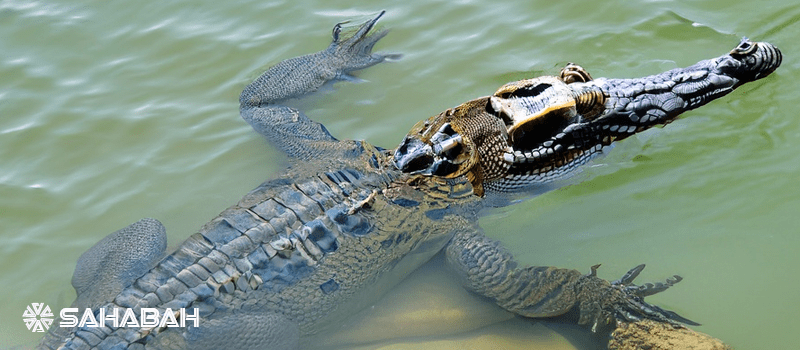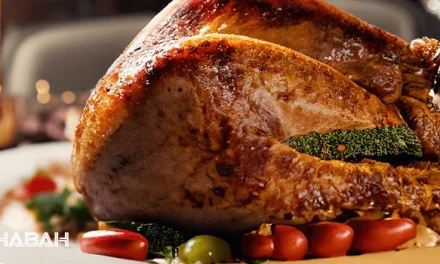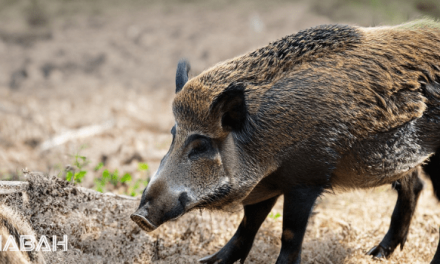I was in East Africa many years ago and came across a restaurant called Carnivore, an outdoor meat buffet type place selling all sorts of exotic meats. I was curious about the halal status of unconventional meats back then and thought this may helps others on thier exiciting journeys, so in this article we will find out the Islamic rulings for an against eating crocodile meat.
Are Crocodiles Halal
Halal and haram are Arabic terms used in Islam to differentiate what is permissible and impermissible under Islamic law. Halal refers to things that are allowed, while haram refers to things prohibited. This applies to all aspects of life, but is especially relevant when it comes to food and drink.
The Quran provides some basic guidelines for what foods are halal, while the hadith (sayings and traditions of Prophet Muhammad pbuh) elaborates further. However, there are some grey areas where scholarly opinions may differ. One such debated food is crocodile meat.
Here are some key principles behind halal dietary laws:
- All vegetarian foods are halal
- Permitted meat must come from certain slaughtered animals (are cows halal?)
- Prohibited foods include pork, blood, carrion and alcohol (is wine haram?)
- Intoxicants are forbidden (is vodka halal?)
- Foods contaminated with haram products may also be prohibited
Some major prohibited categories relevant to this discussion:
- Land predators with fangs such as lions, tigers (is tiger meat halal?)
- Birds of prey with talons such as eagles, vultures
- Reptiles such as snakes (are snakes halal?)
The permissibility of seafood is more complex, as creatures like shrimp and crab exhibit some forbidden traits but also are from the sea, which complicates rulings.
Islamic dietary laws categorize foods as clearly halal, clearly haram, or disputed based on interpretation of religious scripture and scholarly consensus. The status of crocodile meat falls into this third grey area that is debated among Muslim religious authorities.
Status of Crocodile Meat in Islam
There are differing views on whether crocodile meat is halal or haram in Islam:
Opinion that Crocodile is Haram
-
Crocodiles are aggressive predators with sharp teeth, similar to other prohibited animals like lions, tigers, and snakes (are snakes halal?)
-
A hadith prohibits consumption of all “beasts of prey with fangs” (can you eat lion?)
-
Their nature as hunters and carnivores makes them haram, according to some scholars
“Crocodiles are wild, fanged, predators. They attack and kill living animals for food. Therefore, crocodiles are haram to eat in Islam.”
Opinion that Crocodile is Halal
-
Crocodiles spend much of their lives in water, giving them similarities to fish which are halal
-
The prohibition on “beasts of prey” is open to interpretation and crocodiles are not mentioned specifically
-
Lack of explicit prohibition in the Quran or sahih hadiths leaves room for permissibility
“Crocodiles live mostly in the water and therefore exhibit characteristics similar to fish, which are undisputedly Halal in Islam.”
There are schools of thought in both directions, with reasonable cases for crocodiles being halal or haram. This grey area leads to differing opinions among Islamic jurists and scholars.
Evidence Supporting Crocodile Being Haram
There are several arguments from Islamic principles and texts that support classifying crocodiles as haram (forbidden) to eat:
-
Hadith prohibiting fanged beasts – There is a sahih (authentic) hadith that states: “Allah and His Messenger have prohibited the eating of carnivorous animals with fangs, i.e. lions, leopards, wolves, dogs etc.” Source
-
Crocodiles are aggressive predators – Crocodiles have sharp teeth and prey on other animals, similar to tigers, lions, and snakes which are clearly haram. Their predatory nature is a strike against permissibility.
-
Lack of mention as an exception – Permitted seafood is mentioned explicitly, but crocodiles are not given any exception despite living in water. Their omission implies impermissibility.
-
Principle of doubt – In cases of scholarly disagreement on permissibility, some jurists see avoiding the doubtful thing as prudent. This precautionary principle suggests avoiding crocodiles.
This evidence points towards classifying crocodiles as haram based on the general prohibition on predators, lack of an explicit exception for them, and precaution when in doubt. Their hunting and carnivorous characteristics lend support to the opinion of forbidden crocodile meat.
Evidence Supporting Crocodile Being Halal
There are also reasonable arguments made for considering crocodile meat to be halal (permissible):
-
Aquatic nature – Crocodiles spend much of their lives in water, similar to fish and other sea creatures that are halal to consume. This water-dwelling characteristic lends support.
-
Lack of explicit prohibition – Neither the Quran nor any authentic hadith directly and specifically prohibits eating crocodile meat. The lack of explicit mention leaves room for different interpretations.
-
Permitted locusts – A hadith allows locusts, even though they exhibit some predatory behavior. This suggests predators are not all unequivocally haram.
-
Regional traditions – In some Muslim-majority regions like Southeast Asia, crocodile meat is eaten by some Muslims after pronouncing God’s name over it. The existence of this local tradition and culture provides a basis as well.
-
Principle of moderation – Some jurists say that adopting a more moderate or lenient view is wise in unclear cases. This principle would favor permissibility of crocodiles given the lack of definitive evidence otherwise.
These arguments demonstrate a reasonable basis in Islamic law and principles to consider crocodile meat permissible for Muslims. The evidence is not entirely one-sided, which leads to differing conclusions on this issue.
Contemporary Islamic Opinions
Given the evidence and arguments on both sides, contemporary Islamic scholars differ in their rulings on the permissibility of crocodile meat:
-
Prominent scholars declaring it haram – Some influential modern scholars, including Yusuf al-Qaradawi and the late Muhammad Sayyid Tantawi, have prohibited crocodiles based on their predatory nature.
-
Conditional permissibility – Some permit crocodiles but with certain conditions, such as pronouncing God’s name at slaughter, confirming it is not a dangerous crocodile, or limiting consumption frequency.
-
Permitted in Southeast Asia – Crocodiles are commonly eaten in Muslim communities of Indonesia, Malaysia, and elsewhere in Southeast Asia after following ritual preparation.
-
Differing national fatwas – Councils in different countries have issued conflicting fatwas (religious rulings) on crocodiles reflecting these diverse stances.
-
Advice to exercise personal discretion – Given the differences of opinion, some scholars advise individuals to investigate and exercise their own judgment on whether to avoid or permit crocodile based on the evidence.
There is no consensus among contemporary Muslim authorities, with crocodile deemed permissible by some and prohibited by others. This demonstrates the complex nature of arriving at a definitive ruling on this issue.
Conclusion
In conclusion, the permissibility of eating crocodile meat in Islam remains an area of scholarly debate and disagreement. This article has outlined the key evidence and arguments on both sides:
-
There are reasonable cases made for crocodiles being halal or haram based on different interpretations of Islamic principles and texts.
-
The prohibitions on land predators with fangs seems to present a challenge, but crocodiles also exhibit some characteristics of permitted sea creatures.
-
Contemporary Muslim jurists and authorities are divided, with some declaring crocodile haram and others allowing it conditionally or fully.
-
Regional custom also plays a role, as crocodile consumption has a long tradition in parts of Southeast Asia.
Given the lack of consensus, it is an issue that requires further thoughtful analysis and discussion among Islamic scholars. Individual Muslims are advised to investigate the evidence and make a personal determination according to their conscience and faith on whether to avoid or permit crocodile meat.
As with any doubtful matter in Islam, pray for guidance and act with piety and prudence. The debates surrounding crocodile permissibility illuminate the nuances, complexities and diversity of approaches in applying Islamic dietary laws to modern contexts.





